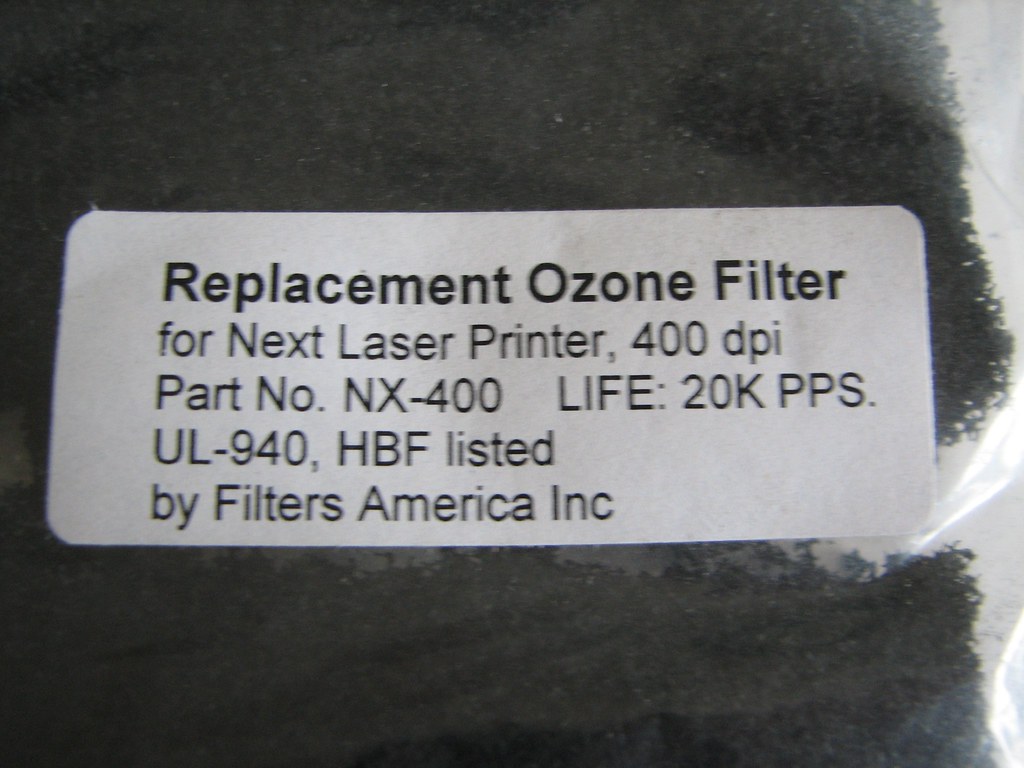Are you concerned about the quality of the air you breathe? Do you want to improve your health and well-being? If so, you're not alone. Many people are looking for ways to reduce ozone and its harmful effects on the body. While there are plenty of well-known methods for reducing ozone, such as avoiding outdoor activities during peak hours, there are also some surprising ways that can help improve your air quality and overall health. In this blog post, we'll explore 10 unexpected ways to reduce ozone and boost your health that you may not have considered before. So sit back, take a deep breath (of clean air), and get ready to learn something new!
Understanding the Harmful Effects of Ozone on Your Health
Harmful effects and ozone on your health may not be something you think about often, but it is important to understand the potential dangers. Ozone is a gas that can be found both indoors and outdoors, and exposure to high levels of ozone can lead to respiratory problems such as coughing, wheezing, shortness of breath, and chest pain. It can also aggravate existing respiratory conditions like asthma or COPD.
Not only does ozone affect our breathing, research has shown that long-term exposure may increase the risk for other health issues such as heart disease and stroke. This is why taking steps to reduce indoor ozone levels should be a top priority for anyone concerned with their overall health and wellbeing.

10 Surprising Ways to Reduce Ozone in Your Home
Reduce ozone in your home by making simple changes. One of the most effective ways is to use an air purifier with a HEPA filter that captures harmful particles and allergens, including ozone. Another way is to avoid using products that emit volatile organic compounds (VOCs), such as cleaning supplies, furniture polish or air fresheners. Instead, opt for natural alternatives like vinegar, baking soda or essential oils.
You can also reduce ozone levels indoors by keeping your windows open to improve ventilation and decrease indoor humidity levels. Using an exhaust fan while cooking or showering can help too. Additionally, replacing old appliances with energy-efficient models can significantly reduce ozone emissions from electricity generation.
It's important to be mindful of potential sources of outdoor pollution entering your home as well. Make sure all vents and openings are properly sealed and keep doors closed during peak hours of outdoor pollution activity.
By implementing these simple strategies, you'll not only reduce ozone levels, but also create a healthier environment for yourself and those around you.

How Indoor Plants Can Help Improve Air Quality and Boost Your Health
Indoor plants can be incredibly helpful in improving air quality and reducing ozone levels in your home. Studies have shown that certain types of plants, such as spider plants and peace lilies, are particularly effective at filtering harmful toxins from the air.
In addition to their purifying abilities, indoor plants also offer numerous health benefits. They can help lower stress levels, improve mood, and even boost productivity.
When selecting indoor plants for your home, it's important to choose varieties that thrive indoors and require minimal maintenance. Consider how much natural light is available in each room and select plant species accordingly.
As an added bonus, incorporating living greenery into your decor can make any space feel more inviting and relaxing. So why not enhance both the aesthetic appeal of your home while also promoting better health?

The Benefits of Using Natural Cleaning Products to Reduce Ozone
Why Traditional Cleaning Products Contribute to Ozone Pollution
Traditional cleaning products contain volatile organic compounds (VOCs) that can react with ozone in the air and create harmful pollutants. These pollutants can cause respiratory problems, headaches, and other health issues. Additionally, many traditional cleaning products come in single-use plastic containers that contribute to environmental pollution. By switching to natural cleaning products, you can reduce your exposure to harmful pollutants and help protect the environment. Look for products that are labeled as "low VOC" or "VOC-free" and made with natural ingredients such as vinegar, baking soda, and essential oils. Making this simple switch can have a big impact on both your health and the environment.
The Benefits of Switching to Natural Cleaning Products
Making the switch to natural cleaning products can have a significant impact on reducing ozone in your home. Traditional cleaning products contain volatile organic compounds (VOCs) that release harmful chemicals into the air, contributing to ozone pollution indoors. By using natural alternatives, you eliminate these harmful chemicals and reduce your exposure to ozone.
Not only are natural cleaning products better for the environment and your health, but they also tend to be more affordable in the long run. You can make many effective cleaners with simple ingredients like vinegar and baking soda for a fraction of the cost of traditional commercial cleaners.
By switching to natural cleaning products, you'll not only reduce ozone pollution but also create a safer and healthier living space for yourself and those around you.
How Natural Cleaning Products Can Improve Indoor Air Quality
Using natural cleaning products can significantly reduce the amount of harmful chemicals and ozone in your home. Chemical-based cleaning products emit a range of pollutants that contribute to poor indoor air quality, including volatile organic compounds (VOCs), ozone, and other toxic substances. By switching to natural cleaners such as vinegar or lemon juice, you can avoid these harmful effects while still effectively removing dirt and germs from your home surfaces. Not only do natural cleaning products help reduce ozone levels in your home, but they also offer many additional health benefits by eliminating exposure to harsh chemicals and improving overall indoor air quality.
Eco-Friendly Cleaning Tips for a Healthier Home
Cleaning products that contain harsh chemicals can contribute to indoor air pollution and increase ozone levels. Eco-friendly cleaning is a great way to reduce your exposure to harmful toxins and improve the air quality in your home. One effective method is using natural cleaning solutions like vinegar or baking soda, which are safe for both you and the environment. You can also opt for environmentally friendly brands with organic ingredients that don't emit dangerous fumes or chemicals into the air. These small changes can significantly reduce ozone levels in your home while keeping it clean - creating a healthier living space for you and your family.
How Proper Ventilation Can Help Reduce Ozone and Improve Your Health
Proper ventilation is crucial in reducing ozone levels in your home. Ozone is a byproduct of many household activities, such as cooking, cleaning, and using certain appliances. Without proper ventilation, these activities can lead to a buildup of ozone indoors. To improve ventilation, consider opening windows and doors to allow fresh air to circulate throughout your home. You can also use exhaust fans in the kitchen and bathroom to remove excess moisture and pollutants from the air. Another effective way to improve ventilation is by installing an air exchange system that brings fresh air into your home while removing stale air. By improving ventilation, you can reduce ozone levels in your home and improve the overall air quality, which can have a positive impact on your health.
The Surprising Link Between Diet and Ozone Reduction
Diet plays a crucial role in reducing ozone exposure and improving your health. Consuming foods that are rich in antioxidants, such as fruits and vegetables, can help protect your body from the harmful effects of ozone. Foods that are high in omega-3 fatty acids, such as fish and nuts, can also help reduce inflammation caused by ozone exposure. On the other hand, consuming processed foods and sugary drinks can increase inflammation and make you more susceptible to the negative effects of ozone. Additionally, drinking plenty of water can help flush out toxins from your body and reduce the impact of ozone on your health. By making simple changes to your diet, you can protect yourself from the harmful effects of ozone and improve your overall health.

How to Choose the Right Air Purifier for Your Home to Reduce Ozone
When choosing an air purifier to reduce ozone levels in your home, it's important to consider a few key factors. First, make sure the purifier you choose is specifically designed to target ozone. Look for one that uses activated carbon filtration, as this type of filter can effectively absorb and neutralize ozone molecules.
Secondly, consider the size of your space and the airflow rate of the air purifier you're considering. You'll want a purifier that can handle the square footage of your room and has a high enough CADR (Clean Air Delivery Rate) to circulate clean air efficiently.
Other features like noise level, energy efficiency, and ease of maintenance may also be important considerations depending on your needs. Do some research and read product reviews before making a purchase to ensure you're getting an effective air purifying solution for reducing ozone levels in your home.
Simple Lifestyle Changes That Can Help You Reduce Ozone Exposure and Improve Your Health
Reducing ozone exposure can be as simple as making a few lifestyle changes. For starters, avoid exercising outdoors during peak ozone hours (usually midday to early evening). If you must be outside during these times, try to stay in shaded areas or wear a mask. Reducing your carbon footprint can also help reduce ozone levels. Consider walking, biking, or taking public transportation instead of driving alone. Additionally, avoid using gas-powered lawn equipment and opt for electric or manual tools instead. Inside your home, make sure to keep windows and doors closed during high ozone days and use air conditioning if possible. Finally, quit smoking or avoid exposure to secondhand smoke as much as possible. These simple lifestyle changes can help you reduce your ozone exposure and improve your overall health.
In conclusion, reducing ozone levels in your home can have a significant impact on your overall health and well-being. By implementing these 10 surprising ways, such as using natural cleaning products, incorporating indoor plants, and choosing the right air purifier, you can improve the air quality in your home and reduce your exposure to harmful pollutants. Additionally, making simple lifestyle changes like opening windows for ventilation and being mindful of your diet can also contribute to a healthier living environment. Take control of your health by taking action to reduce ozone levels in your home today.
Common Questions
Who can benefit from learning 10 surprising ways to boost productivity?
Anyone who wants to increase their efficiency and get more done in less time.
What are some surprising ways to improve mental health?
Practicing gratitude, spending time in nature, and volunteering are all effective ways to boost mental health.
How can incorporating mindfulness into your daily routine improve your life?
Mindfulness can help reduce stress, improve focus, and promote overall well-being.
What are some unexpected ways to save money on everyday expenses?
Shopping in bulk, using cashback apps, and buying generic brands can all help save money.
How can making small changes to your diet have a big impact on your health?
Incorporating more fruits and vegetables, drinking more water, and reducing sugar intake can all lead to significant health benefits.
